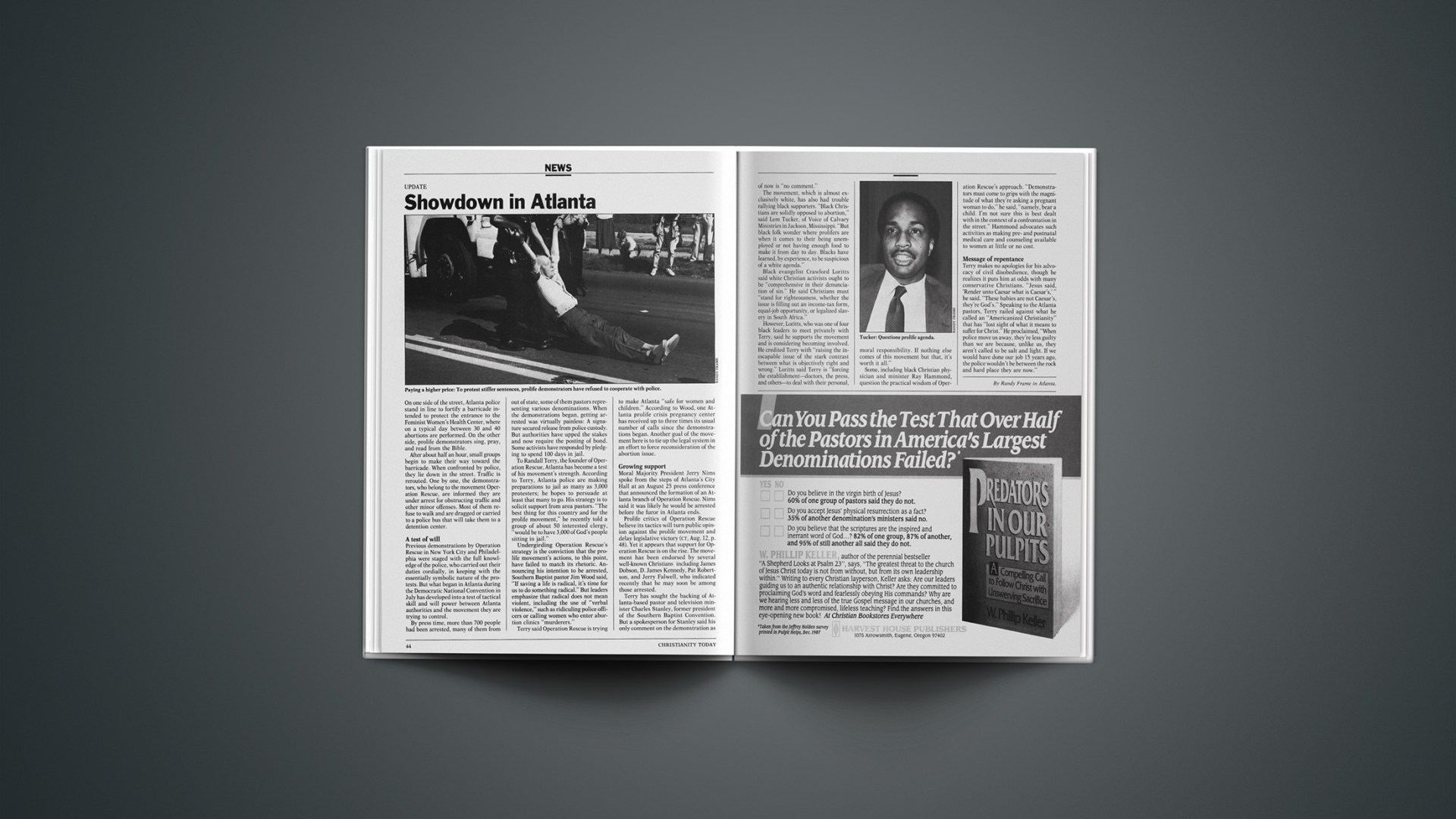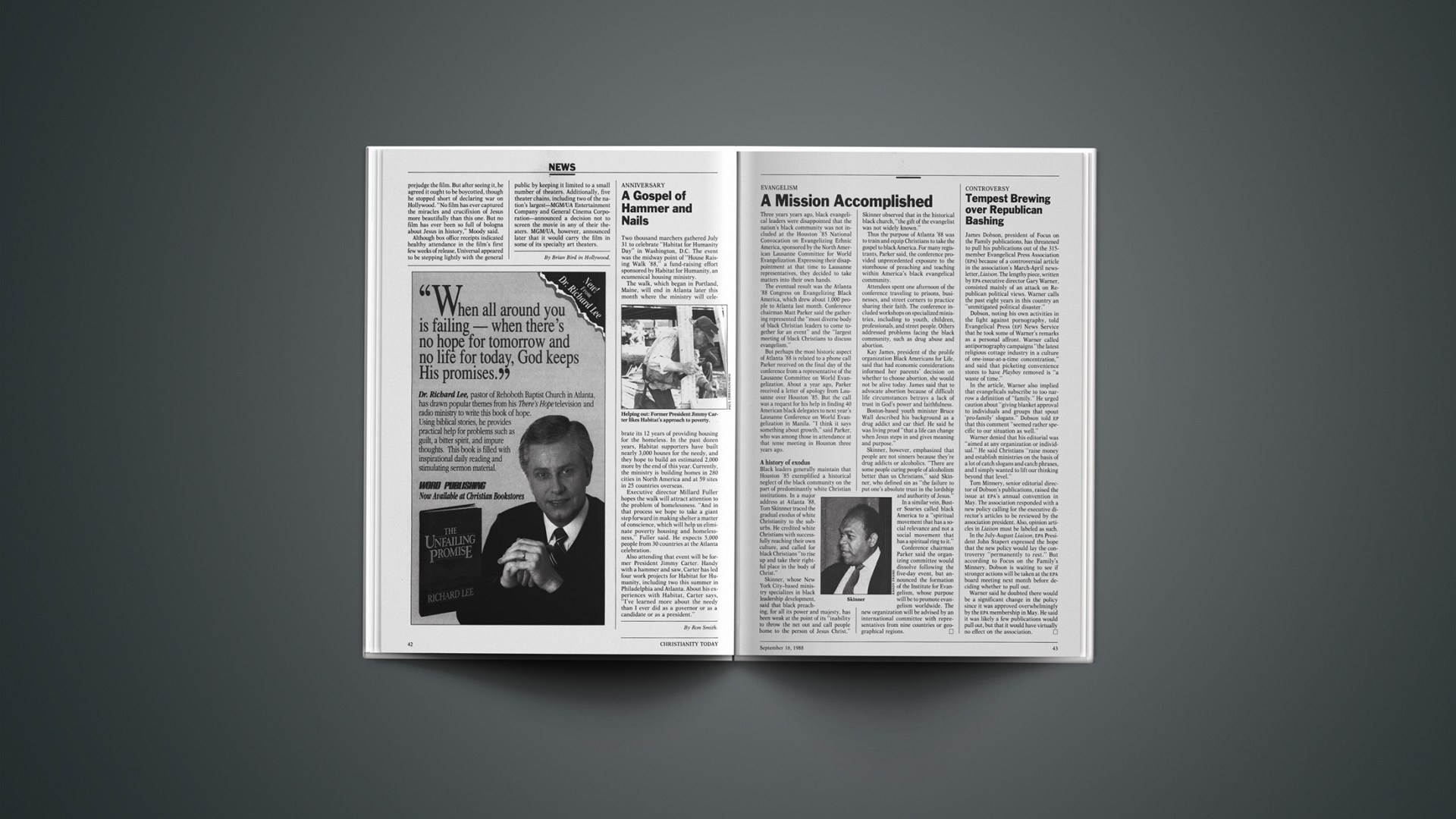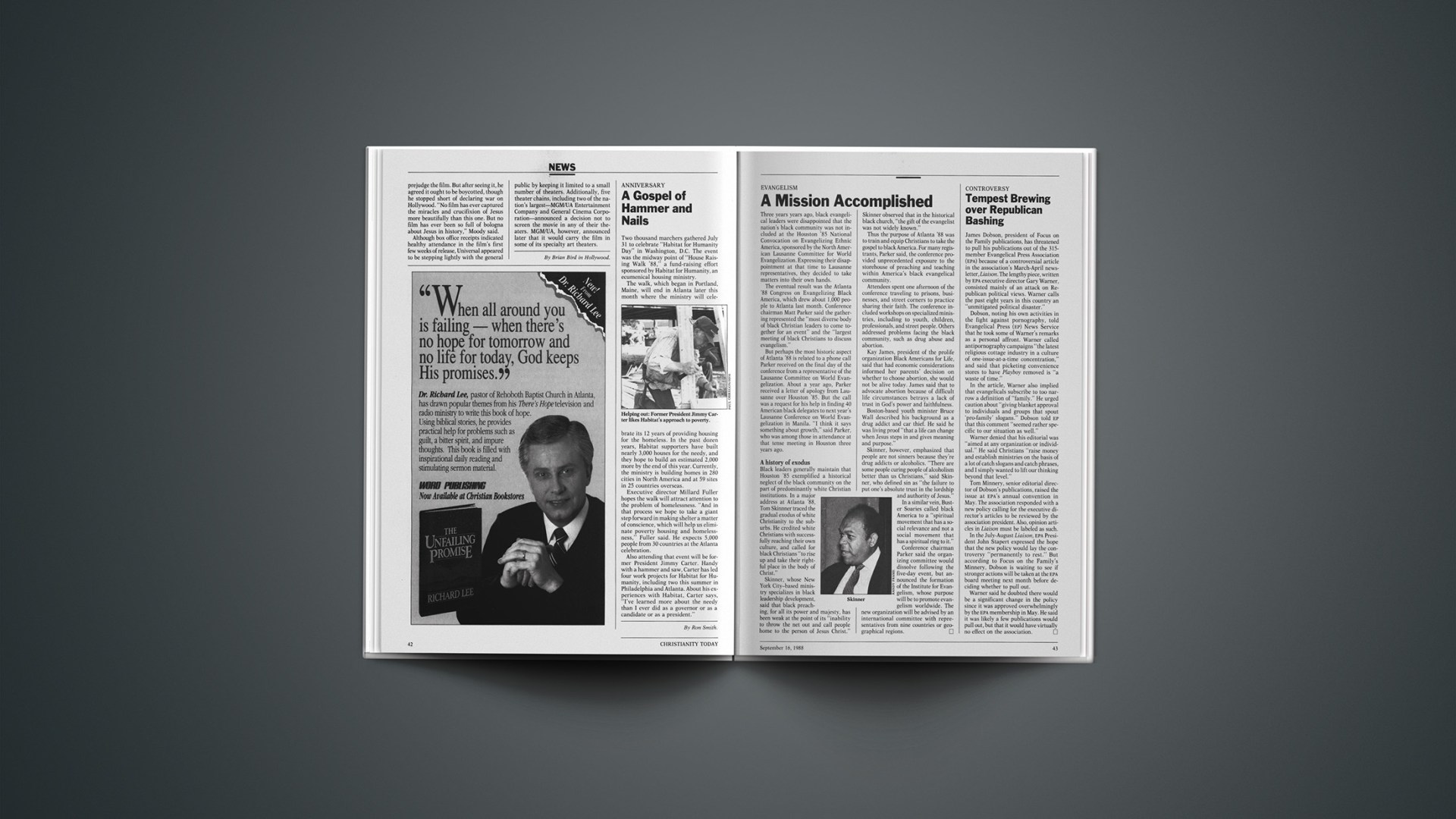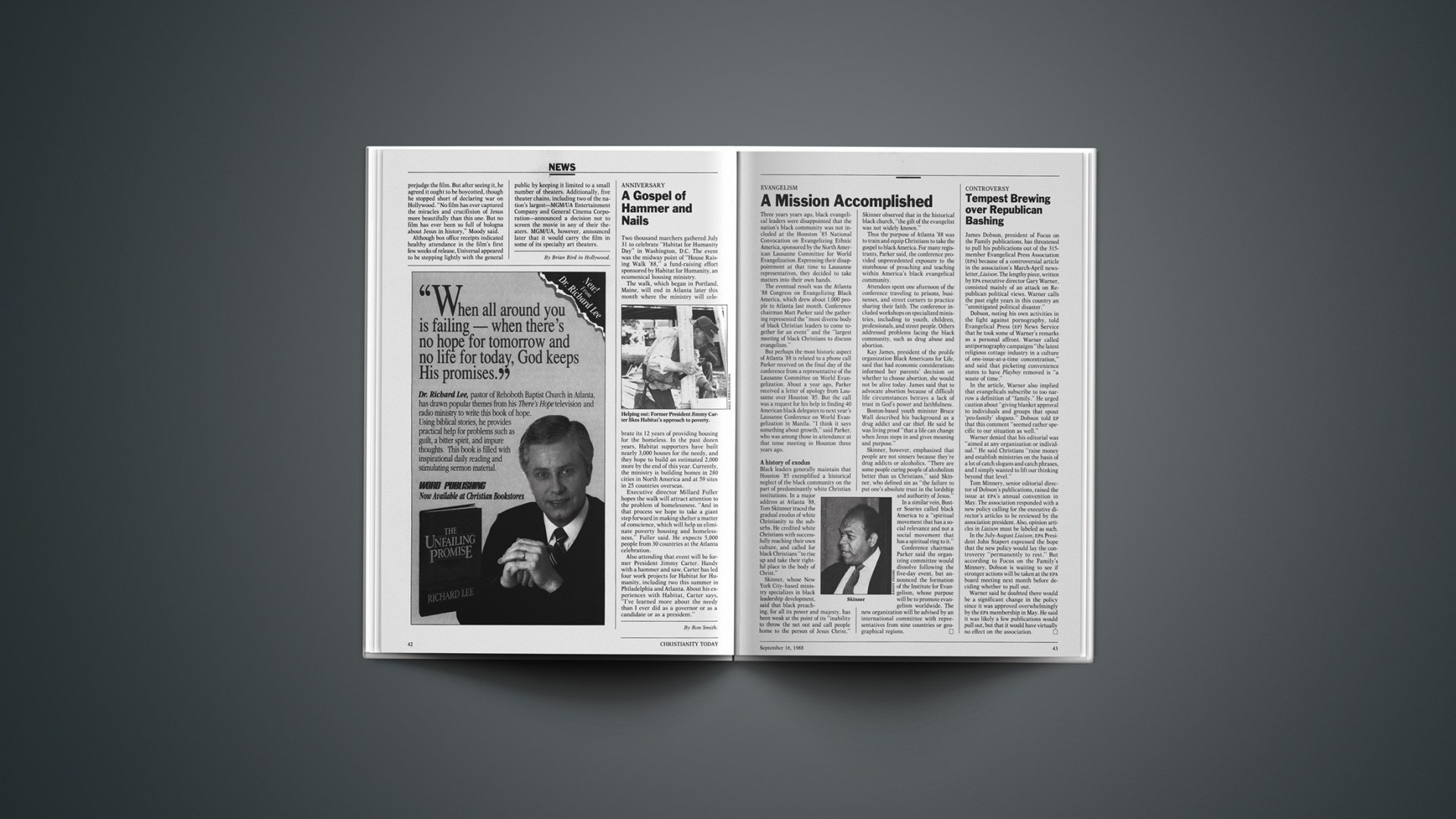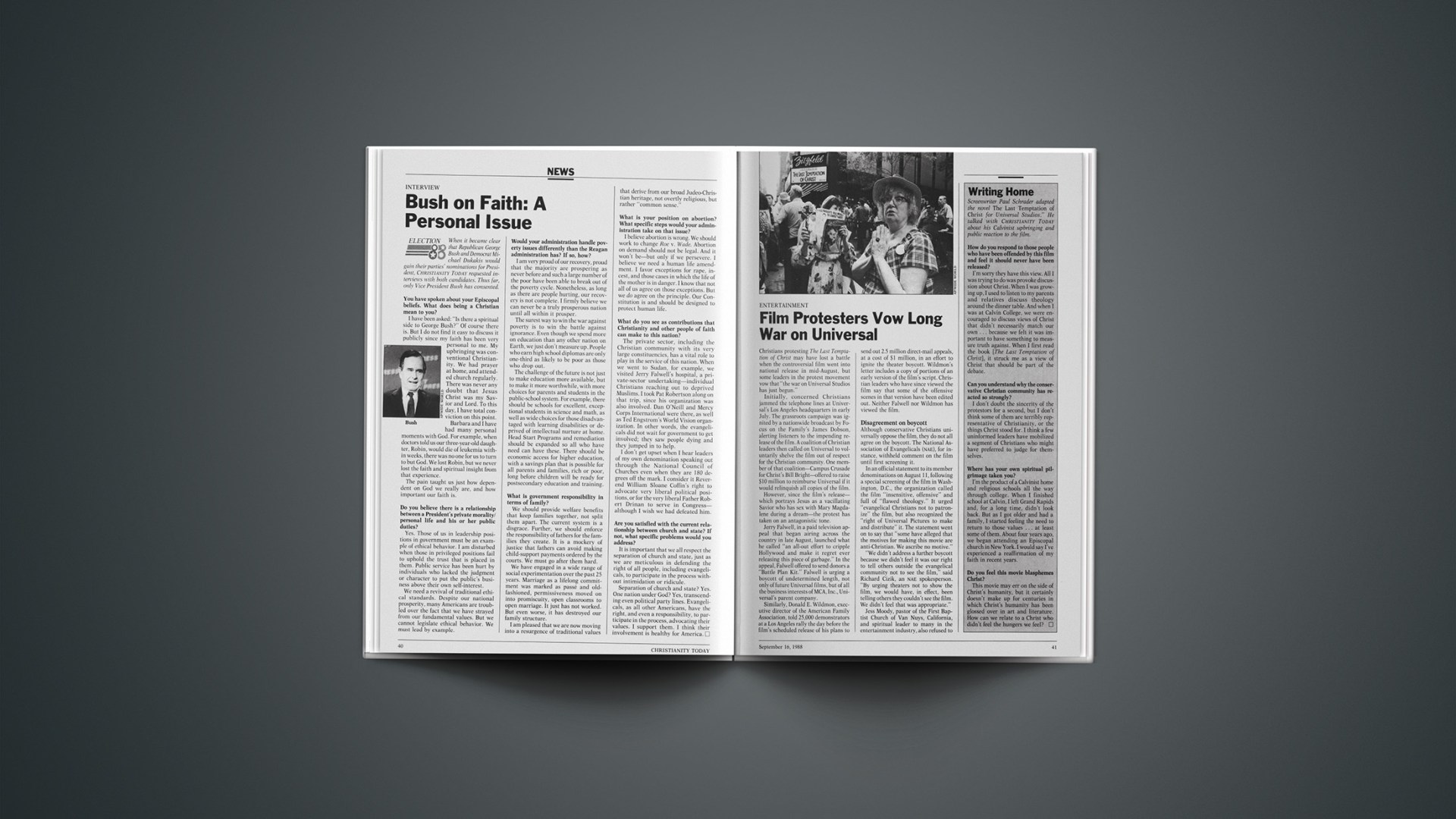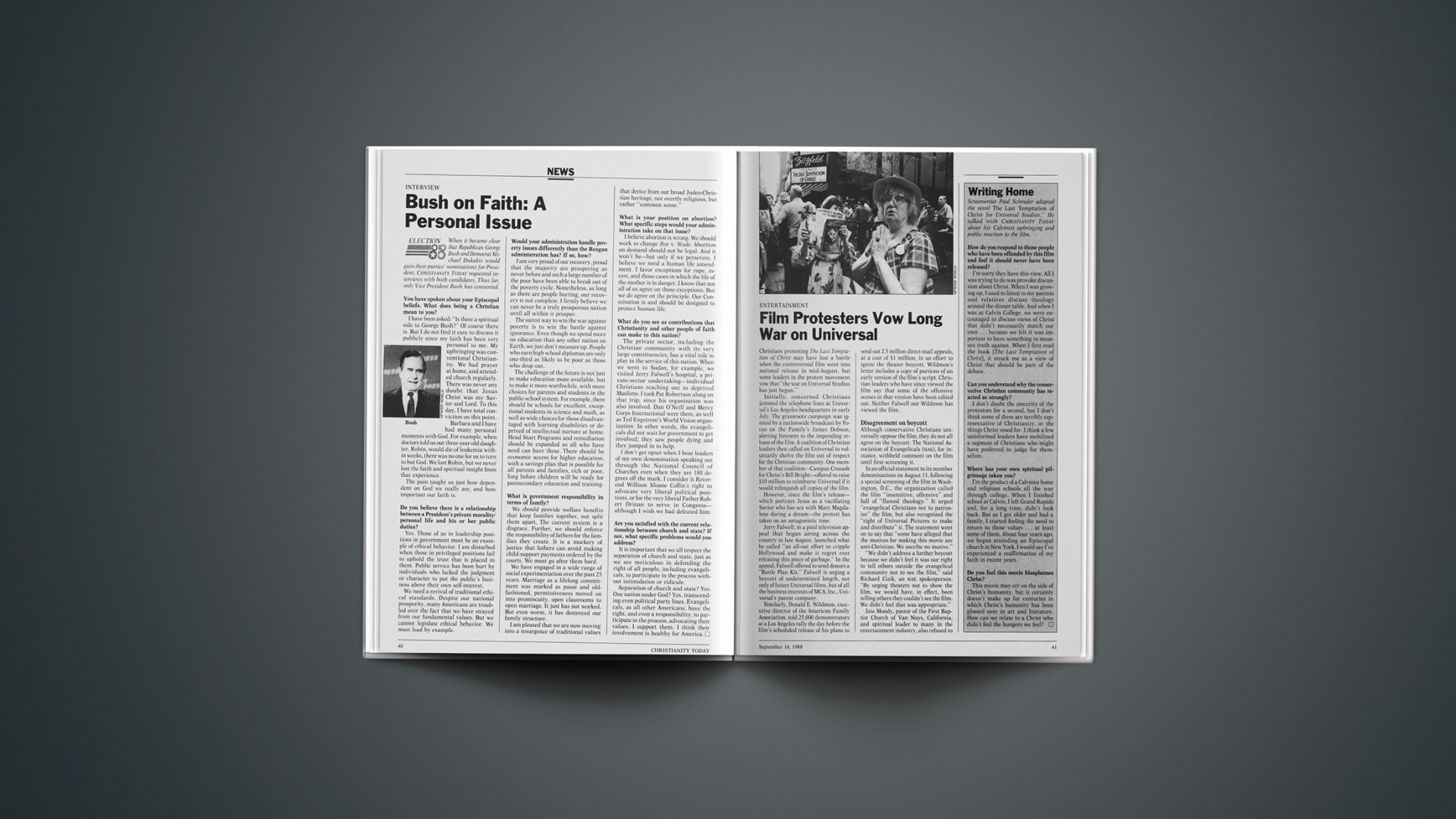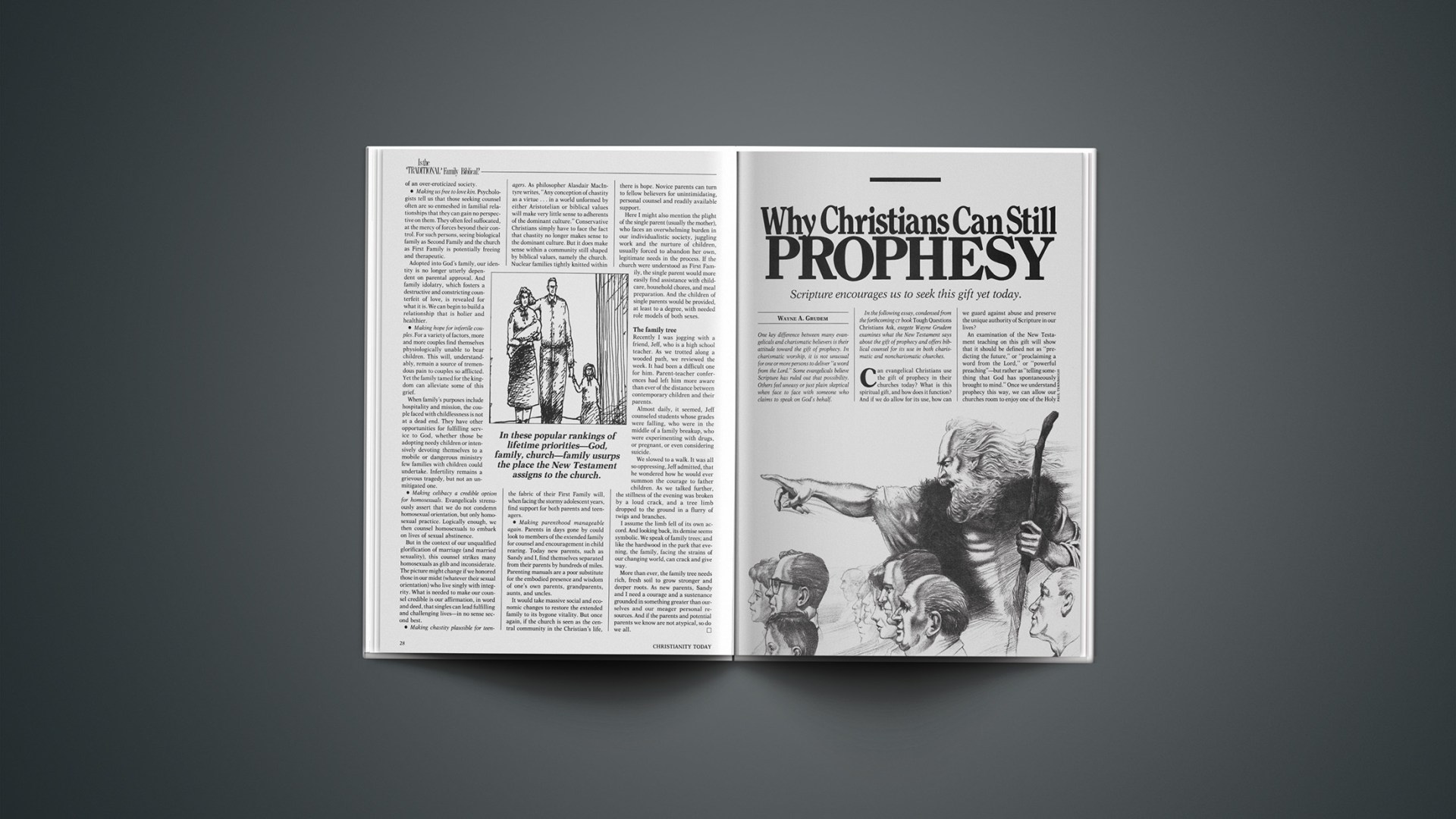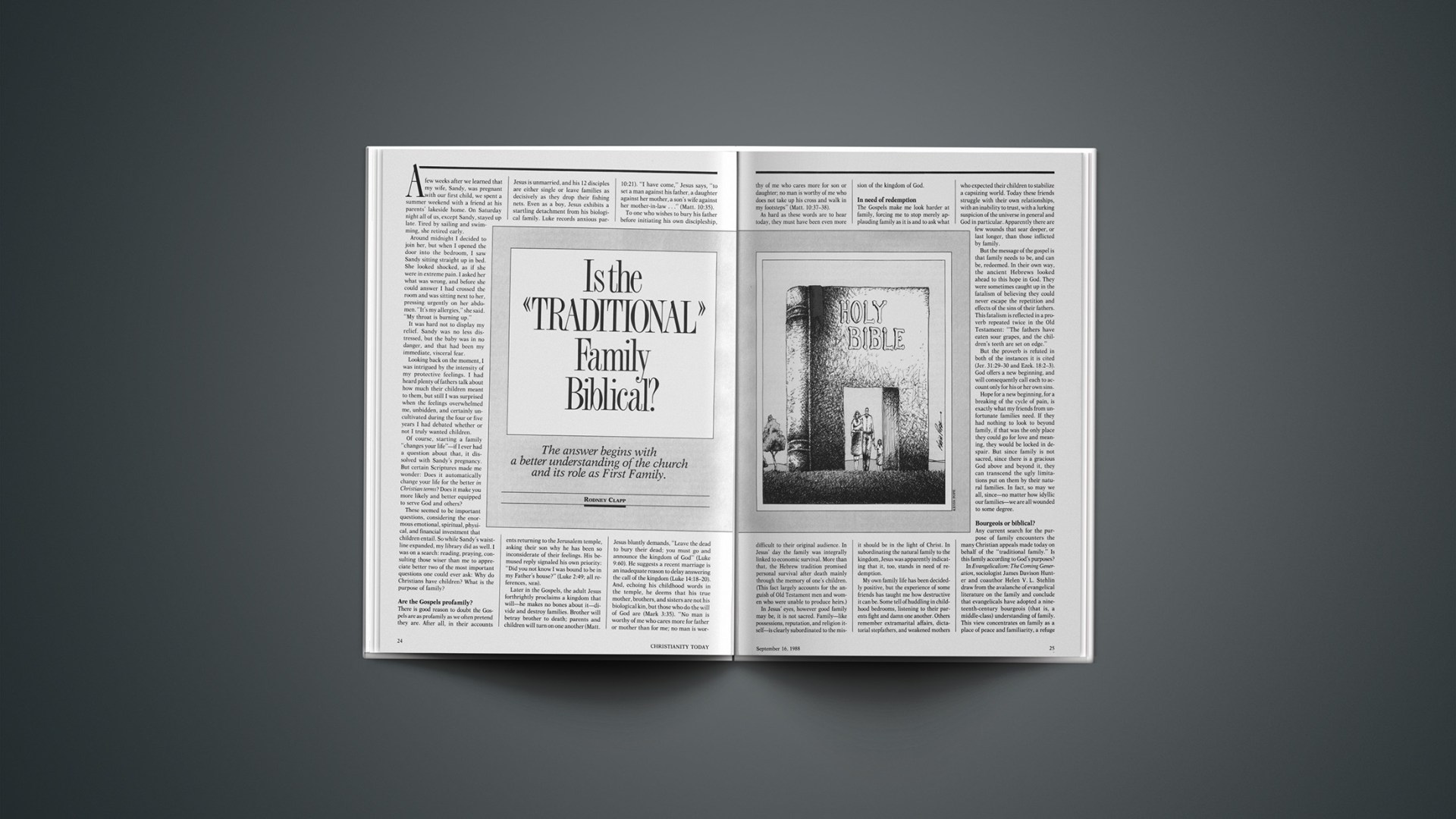UPDATE
On one side of the street, Atlanta police stand in line to fortify a barricade intended to protect the entrance to the Feminist Women’s Health Center, where on a typical day between 30 and 40 abortions are performed. On the other side, prolife demonstrators sing, pray, and read from the Bible.
After about half an hour, small groups begin to make their way toward the barricade. When confronted by police, they lie down in the street. Traffic is rerouted. One by one, the demonstrators, who belong to the movement Operation Rescue, are informed they are under arrest for obstructing traffic and other minor offenses. Most of them refuse to walk and are dragged or carried to a police bus that will take them to a detention center.
A Test Of Will
Previous demonstrations by Operation Rescue in New York City and Philadelphia were staged with the full knowledge of the police, who carried out their duties cordially, in keeping with the essentially symbolic nature of the protests. But what began in Atlanta during the Democratic National Convention in July has developed into a test of tactical skill and will power between Atlanta authorities and the movement they are trying to control.
By press time, more than 700 people had been arrested, many of them from out of state, some of them pastors representing various denominations. When the demonstrations began, getting arrested was virtually painless: A signature secured release from police custody. But authorities have upped the stakes and now require the posting of bond. Some activists have responded by pledging to spend 100 days in jail.
To Randall Terry, the founder of Operation Rescue, Atlanta has become a test of his movement’s strength. According to Terry, Atlanta police are making preparations to jail as many as 3,000 protesters; he hopes to persuade at least that many to go. His strategy is to solicit support from area pastors. “The best thing for this country and for the prolife movement,” he recently told a group of about 50 interested clergy, “would be to have 3,000 of God’s people sitting in jail.”
Undergirding Operation Rescue’s strategy is the conviction that the prolife movement’s actions, to this point, have failed to match its rhetoric. Announcing his intention to be arrested, Southern Baptist pastor Jim Wood said, “If saving a life is radical, it’s time for us to do something radical.” But leaders emphasize that radical does not mean violent, including the use of “verbal violence,” such as ridiculing police officers or calling women who enter abortion clinics “murderers.”
Terry said Operation Rescue is trying to make Atlanta “safe for women and children.” According to Wood, one Atlanta prolife crisis pregnancy center has received up to three times its usual number of calls since the demonstrations began. Another goal of the movement here is to tie up the legal system in an effort to force reconsideration of the abortion issue.
Growing Support
Moral Majority President Jerry Nims spoke from the steps of Atlanta’s City Hall at an August 25 press conference that announced the formation of an Atlanta branch of Operation Rescue. Nims said it was likely he would be arrested before the furor in Atlanta ends.
Prolife critics of Operation Rescue believe its tactics will turn public opinion against the prolife movement and delay legislative victory (CT, Aug. 12, p. 48). Yet it appears that support for Operation Rescue is on the rise. The movement has been endorsed by several well-known Christians including James Dobson, D. James Kennedy, Pat Robertson, and Jerry Falwell, who indicated recently that he may soon be among those arrested.
Terry has sought the backing of Atlanta-based pastor and television minister Charles Stanley, former president of the Southern Baptist Convention. But a spokesperson for Stanley said his only comment on the demonstration as of now is “no comment.”
The movement, which is almost exclusively white, has also had trouble rallying black supporters. “Black Christians are solidly opposed to abortion,” said Lem Tucker, of Voice of Calvary Ministries in Jackson, Mississippi. “But black folk wonder where prolifers are when it comes to their being unemployed or not having enough food to make it from day to day. Blacks have learned, by experience, to be suspicious of a white agenda.”
Black evangelist Crawford Loritts said white Christian activists ought to be “comprehensive in their denunciation of sin.” He said Christians must “stand for righteousness, whether the issue is filling out an income-tax form, equal-job opportunity, or legalized slavery in South Africa.”
However, Loritts, who was one of four black leaders to meet privately with Terry, said he supports the movement and is considering becoming involved. He credited Terry with “raising the inescapable issue of the stark contrast between what is objectively right and wrong.” Loritts said Terry is “forcing the establishment—doctors, the press, and others—to deal with their personal, moral responsibility. If nothing else comes of this movement but that, it’s worth it all.”
Some, including black Christian physician and minister Ray Hammond, question the practical wisdom of Operation Rescue’s approach. “Demonstrators must come to grips with the magnitude of what they’re asking a pregnant woman to do,” he said, “namely, bear a child. I’m not sure this is best dealt with in the context of a confrontation in the street.” Hammond advocates such activities as making pre and postnatal medical care and counseling available to women at little or no cost.
Message Of Repentance
Terry makes no apologies for his advocacy of civil disobedience, though he realizes it puts him at odds with many conservative Christians. “Jesus said, ‘Render unto Caesar what is Caesar’s,’ ” he said. “These babies are not Caesar’s, they’re God’s.” Speaking to the Atlanta pastors, Terry railed against what he called an “Americanized Christianity” that has “lost sight of what it means to suffer for Christ.” He proclaimed, “When police move us away, they’re less guilty than we are because, unlike us, they aren’t called to be salt and light. If we would have done our job 15 years ago, the police wouldn’t be between the rock and hard place they are now.”
By Randy Frame in Atlanta.
North American Scene
CRUSADE EVANGELISM
Graham Targets New York
Evangelist Billy Graham’s Buffalo, New York, crusade enjoyed unprecedented support from mainstream Protestant churches and attracted near capacity attendance.
Prior to the crusade, Graham spokesman Larry Ross had said the predominantly Roman Catholic population of western New York made this series of meetings especially significant. “Cooperation here has been broader than in past crusades,” said Ross, noting that mainline denominations were “carrying the ball” on preparations.
Local media, however, focused on isolated criticism of Graham’s message that being baptized and being confirmed was “not enough.” Says area pastor David Gifford, “The reporter apparently went out looking for a couple of people who had something negative to say about the crusade. While the newspaper failed to mention how warmly Dr. Graham was received here, the television stations did a superb job of covering the meetings.”
Ross says the Buffalo crusade was one of the most united efforts in decades, involving more than 56 denominations. Graham’s swing through New York includes crusades in Rochester and Syracuse.
TRENDS
Clergy Burnout Challenged
Contrary to conventional wisdom, pastors are not overstressed or overworked, says Duke University minister William Willimon. His new book. Clergy and Laity Burnout (Abingdon), suggests clergy burnout is more likely to come from depression and cynicism than stress.
“Ministers need to be honest and acknowledge that society doesn’t place a great deal of value on what we do,” says Willimon, who has served in a number of ministerial settings. He also says low salaries contribute to clergy burnout.
Willimon recommends counseling, but suggests pastors need to take a closer look at their initial reasons for entering the ministry. “We need to look inside ourselves and to the joy of our work so we can continue to believe God wants us to be doing the stuff we’re doing.”
INTERCOLLEGIATE ATHLETICS
The Boss Is A Lady
Greenville College, a Free Methodist-affiliated school in central Illinois, has quietly built a reputation for leadership in athletic administration. Vice-president Robert Smith is president of the International Baseball Association, and former athletic director John Strahl climbed to the presidency of the National Association of Intercollegiate Athletics (NAIA) a decade ago. This year, the new NAIA president is Greenville’s women’s basketball coach, Phyllis Holmes, the first woman to head a major U.S. coeducational sports body. Holmes played basketball for Greenville in the late 1950s, where she saw her first woman coach. She has been women’s athletic director there since 1976 and was inducted into the NAIA Hall of Fame last year—the fifth person from her school to earn the honor.
The new NAIA chief hopes to use her position to open the door for more women in sports leadership. The NAIA has nearly 500 member schools, but only 15 have a woman who serves as athletic director of both a men’s and women’s sports program.
ABORTION
Letting Parents Know
If a young girl wants an abortion, does she need to tell her parents? That issue is even more uncertain after federal appeals courts came to opposite conclusions last month.
In Minnesota, the Eighth Circuit Court of Appeals upheld a 1981 state law requiring a minor girl to notify both her parents 48 hours before she can get an abortion. During the four years that law was in effect, teen pregnancy, child birth, and abortion rates dropped significantly.
But in Ohio, a 1986 parental-notice law was struck down by the Sixth Circuit Court of Appeals. The law was similar to the Minnesota statute, except it had a 24-hour, rather than a 48-hour, waiting period.
Appeals to the Supreme Court are likely in both cases, though abortion advocates are uncertain about their chances. They fear the addition of Justice Kennedy tilts the Court against abortion.
PEOPLE AND EVENTS
Briefly Noted
Named: As president of Northern Baptist Theological Seminary, Ian M. Chapman, pastor of the Third Baptist Church in St. Louis, Missouri. Because of Third Baptist’s dual alignment with the American and Southern Baptists, Chapman has held key positions in both denominations.
Walter C. Wright, Jr., as president of Regent College in Vancouver, British Columbia, succeeding Carl E. Armerding, who will resume teaching at the college. Regent is one of five theological colleges located on the campus of the University of British Columbia.
Announced: By Lutheran Hour speaker Oswald Hoffmann, his intention to retire at the end of the year after 33 years with the popular broadcast. Hoffmann’s last broadcast is scheduled for Christmas from mainland China.
Celebrated: The one-hundredth birthday of the United Methodist deaconess movement, initially the only church office to which women in that denomination could be commissioned. Today, nearly 200 deaconesses (including home missionaries) are under assignment by the United Methodist Church.

